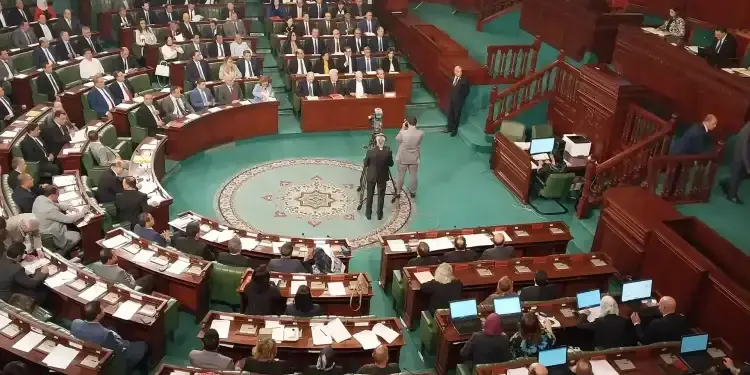After long months of blocking, the revision of the very controversial decree-law n ° 54 should finally be the subject of parliamentary hearings just after Eid al-Idha. The Committee on Rights and Freedoms announces an agreement with the bodies concerned to accelerate the examination of this legislative initiative, at the heart of the debates on freedom of expression in Tunisia.
The assembly of people’s representatives is preparing to reopen a burning file: that of the decree-law n ° 54 relating to the fight against offenses related to information and communication systems. Adopted in 2022, this text is regularly criticized by civil society and legal circles for its effects deemed liberticides. But the lines could move.
In a declaration granted to the newspaper Le Maghreb, the president of the Rights and Freedoms Commission, Mohamed Ali, confirmed that an agreement in principle was reached with the president of the Parliament and that of the General Legislation Commission to start parliamentary hearing immediately after Eid.
The objective: finally to debate the revision proposal made since February 2024, and which, despite an emergency review request, had been blocked for more than a year. Last April, the office of the Assembly sent this initiative to the General Legislation Commission, a decision strongly contested by the Committee on Rights and Freedoms, at the origin of the text. The latter believes that the challenges of fundamental freedoms are fully of its prerogatives.
In addition to decree 54, a second parliamentary initiative is also pending: it is an organic bill relating to freedom of audiovisual communication and the organization of the body responsible for its regulation. This text was also entrusted to the Commission of General Legislation, although it affects media freedoms.
A conflict of jurisdiction was officially raised by the Rights and Freedoms Commission to recover the examination of this project. According to Mohamed Ali, an agreement has been obtained with the governing bodies of the Parliament, acting that no obstacle is opposed to his reassignment. The commission is now awaiting the formal green light to start the work.
The desire to accelerate debates before the parliamentary break seems shared. With 23 draft laws and proposals currently pending before the general legislation committee, the risk of paralysis was watching the two texts.
This is why the Committee on Rights and Freedoms has multiplied consultations to circumvent institutional size and guarantee the rapid launch of hearings. Mohamed Ali said that if administrative obstacles related to hearings – notably with the Ministry of Justice or other representatives of the executive – are lifted, discussions could start in the next few days.








